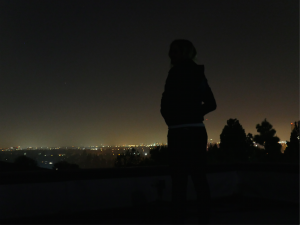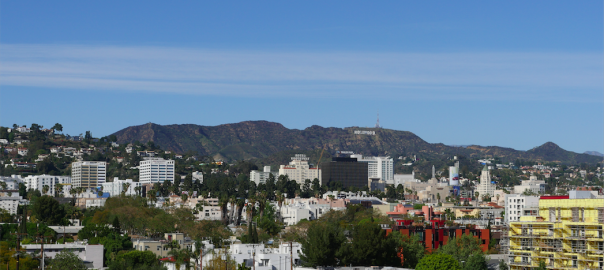3,928,864 people. There are 3.9 million people in the city of Los Angeles. The vast majority of these people are not working for, nor do they want to be working for, the entertainment industry. And yet, there is an energy of urgency in this city. The trope that everyone comes to L.A. to try to “make it” may be false, but the infamy of the trope in itself holds weight, at least in the minds of 10 young people who are weighing whether or not they can and would want to “make it” in the film industry here. Sometimes, it feels like everyone in this industry is trying to meet the right person to get to the next job to meet the next right person, and it’s hard to say how many and which connections are genuine — where the altruism is. Everyone seems to be climbing and no one feels like they’ve reached the top.
This makes sense to me because there is simply so much in L.A. 3.9 million people. Cars. Industries. Jobs. Food. Families. Rejections. Successes. We’ve been studying movies and the body of content overwhelms me. There are archives upon archives of old films, new films, television shows, short films, long films, home movies, etc., etc. How is it possible to make anything original?
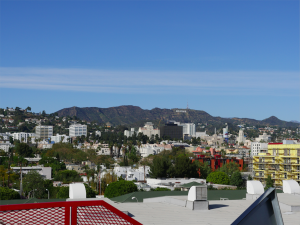
Today, we visited the Margaret Herrick Library, filled with collections of scripts, photographs, periodicals, and books about movies. We were able to read fan mail addressed to early Hollywood stars, see a shooting plan for “North by Northwest,” and look at Alfred Hitchcock’s casting notes. We were also able to hold an Oscar for the second time in three days.
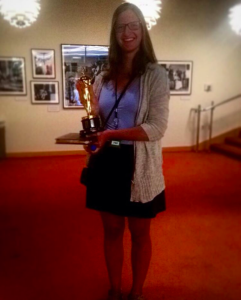
The history of Hollywood is rich, vast and deep. Perusing the shelves and databases of the Margaret Herrick Library made this clear. Despite my immediate understanding that I would never know it all — never watch every movie, read every book, hear every story — seeing hand-written notes in the margins of successful scripts filled me with a sense of peace. I write notes in the margins of my scripts, too.
Often, I hear a loud, persistent voice in my head. It shouts, “Who are you to be here? Who are you to create something that will change how anyone feels about anything?” This voice has been silenced this week in moments that we’ve been able to dig into the archives of history and remember that history is made by people.
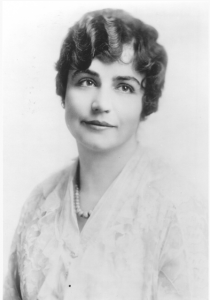
I find myself reading a script, or a line from a book about a funny production mishap, and I think about how, before these movies were influential, they weren’t. Nobody really talks about the self-doubt that plagued Mary Pickford and Douglas Fairbanks and Lois Weber and, well, Steven Spielberg, but I’m 99% sure they were/are human, too.
I remember this fundamental humanness, and I hear another voice, a quieter, less-assured voice, but a voice, nonetheless, asking, “Who are you not to create something that will change the world?” And I look around at my peers — playing with cameras and taking notes and listening attentively and laughing hysterically — the friends I often joke (half-joke) about starting a production company with, and I’m filled with so much confidence.
3.9 million people. There are 3.9 million people in the city of Los Angeles. And I find myself lucky enough to be surrounded by the people in this van.
Sometimes, as I watch a line of whirring headlights on the freeway or walk through a crowded street to get food or take in the sprawl of buildings beyond buildings beyond buildings, I pause. I remember that I’m here, too. And sure, not all of us, here in L.A., will reach the pinnacle of what we deem “success,” but we made it this far. And I don’t know, in this ocean of people, what it is exactly that we’re making, but we’re making it.
